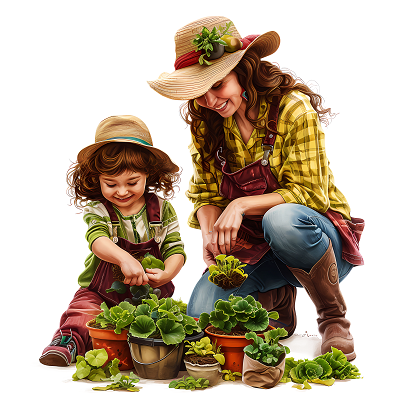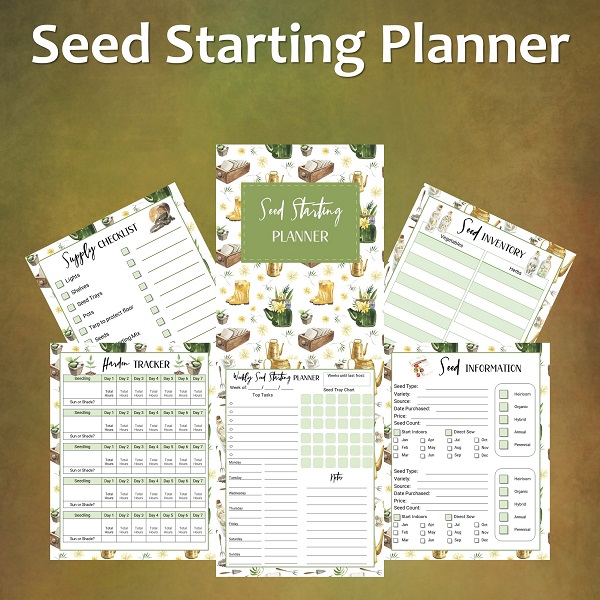 Starting your own organic garden at home can be daunting, especially if this is your first garden. Luckily, with a few tips from the pros, your garden will come to life in the most worthwhile and satisfying way in no time.
Starting your own organic garden at home can be daunting, especially if this is your first garden. Luckily, with a few tips from the pros, your garden will come to life in the most worthwhile and satisfying way in no time.
1 – Start Small
If this is your first time gardening, start small. Larger and more successful organic gardens don’t happen overnight. By starting with a simple windowsill garden or a few potted plants, you can work your way up while also building confidence.
By starting with a small garden, it minimizes the risk of overplanting, which is why many gardens tend to fail. Instead of thinking about how much of each plant you will get, think about how you can use each vegetable or fruit in terms of meals.
2 – Find the Best Soil
Good soil is vital for successful organic gardening. Go to a garden center for good soil, or better yet, if you have a friend that gardens or farms ask for some of their soil.
Remember, healthy soil helps build up durable and productive plants.
3 – Make Good Compost
Compost is a must for any type of garden; it help conserves water, feeds plants and cuts down on weeds. Although many farm and garden centers sell ready-made compost, homemade compost is better for both your budget and your garden.
For best homemade composting results, add alternating layers of carbon/brown material such as leaves and garden trimmings, and nitrogen/green material such as kitchen scraps and manure, with a small layer of soil in between.
Turn the pile as new layers are added and use water to keep your compost moist, you should have good compost in as little as a few months.
4 – Choose the Right Plants
Research a little about each plant you choose and look into their best growing conditions. When choosing plants be sure to pick the right type of plant for your garden’s moisture, light, and soil.
If you’re buying seedlings, look for plants without chemical fertilizers and pesticides. A great place to look for good seedlings is at your local farmer’s market, which may also have varieties of plants well suited to the area that you live in.
5 – Watch Out for Weeds and Pests
Since you are growing organically, you aren’t going to be using herbicides or pesticides. That’s nothing to worry about though; there are easy ways to get rid of unwanted growths in your garden.
You can easily get rid of pests and weeds by hand. After you dig out the weeds by either hand or by using a hoe, add more compost to prevent weed growth in the first place. For unwanted insects, a stream of water removes some bugs, and you can research some organic pest control methods if the problem gets out of hand.
6 – Don’t Be Afraid to Ask for Help
If your neighbors or friends are growing gardens, ask them what they grow. By following what other gardeners are growing in your area, you’ll know what you’ll likely have the best luck with.
There are many online forums for organic gardening. If you have a question, you’ll probably find your answer easily without having to ask yourself.



